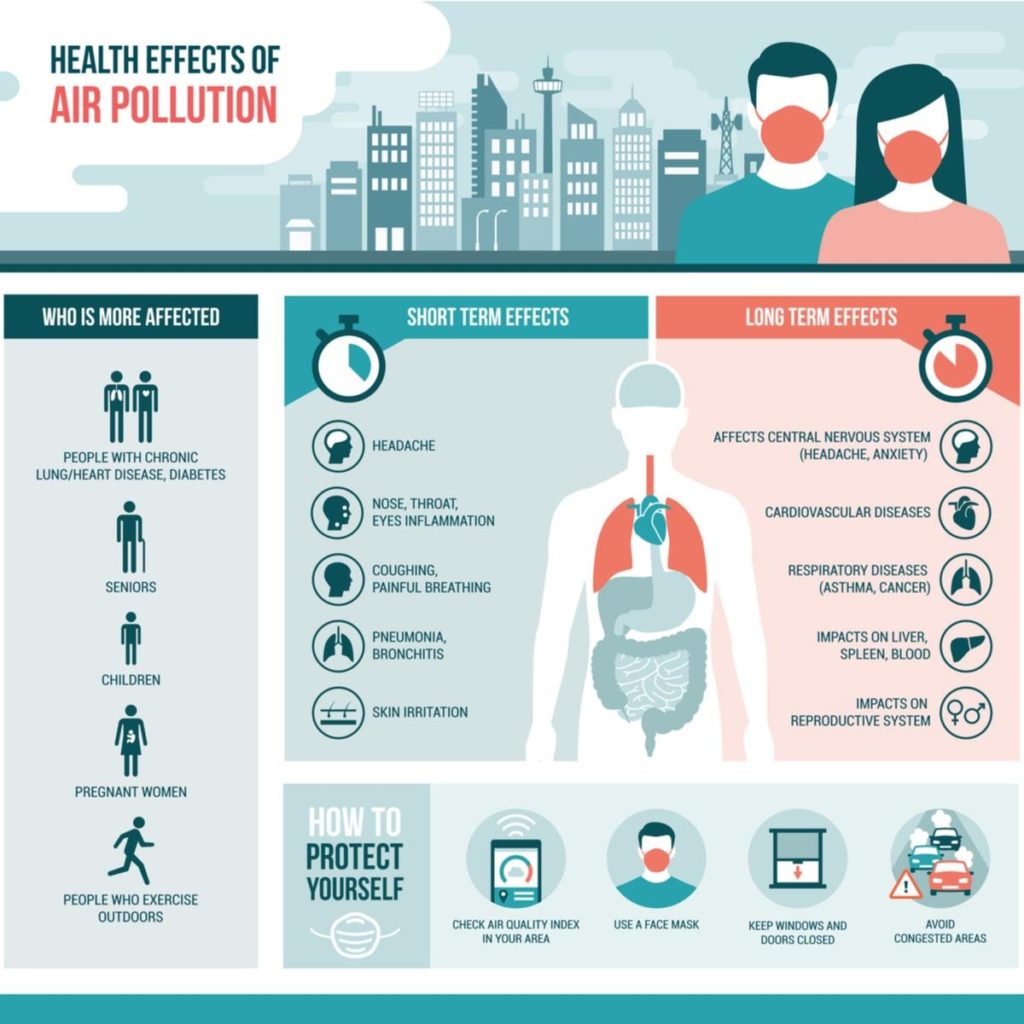What you are breathing could be deadly
We all know that air pollution negatively impacts residents in many cities. Just ask anyone living in Los Angeles or nearly any metropolitan area in China or India. Air pollution associated with the burning of fossil fuels primarily for electricity generation, heating, industrial use and powering most modes of transportation, leads to long-lasting, damaging outcomes for millions of people. Steven Kemler, an entrepreneurial business leader and co-founder of Ultimate Medical Academy, comments that in America alone, nearly one half of the population – an estimated 150 million people – live in areas that do not meet federal air quality standards.
According to the Union of Concerned Scientists of America (UCSUSA) and the World Health Organization (WHO), the health risks associated with poor air quality are extremely serious. Globally, WHO reports that air pollution is estimated to cause ~29% of lung cancer deaths, ~43% of COPD deaths, ~25% of coronary artery disease deaths and approximately 24% of stroke deaths. In total, air pollution causes approximately four million deaths per year around the globe.
In addition to these fatalities, air pollution reduces the quality of life for millions (especially by causing or worsening asthma in children), adversely burdens health care systems and costs many billions of dollars annually though reduced worker productivity and health care costs. While air pollution is worst in the Western Pacific and South-East Asia regions, it still very prevalent in the US with lower income areas being hit particularly hard and areas of the Midwest, Appalachia and states like Ohio, Louisiana and Missouri having some of the highest fatality rates linked to air pollution.
In addition to the direct impact of air pollution, according to a recent study by the Department of Biostatistics at Harvard University’s T.H. Chan School of Public Health, many of the pre-existing conditions that cause death in those with COVID-19 are the same diseases that are impacted by long-term exposure to air pollution. According to the study, air pollution exposure is known to cause inflammation and cellular damage, and evidence suggests that it may suppress early immune response to infection. These researchers found that even a small increase in long-term exposure to the fine particles found in air pollution led to a meaningful increase in the COVID-19 death rate
According to Kemler, the World Bank estimates lost income from global air pollution, much of it from the wide-spread use of fossil fuels, is in the hundreds of billions of dollars each year. When you add this to the growing damage and economic losses from climate change and the health impacts to children and adults, the case for increased investment in carbon-free power generation, electric vehicles and energy efficiency is beyond compelling.




